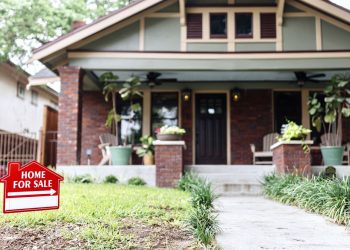Older workers have been increasing their footprint in the labor force for decades, but recent data from the Mortgage Bankers Association’s (MBA), found that the demographic isn’t as quick to move as others.
The MBA’ Research Institute for Housing America (RIHA) released its “Why Are Older Workers Moving Less While Working Longer?” report on Tues., June 29. The study looked at the relationship between adverse labor market shocks, housing wealth changes and migration by considering how rising import competition impacted the U.S. housing and labor markets after 2001.
According to the study, labor force participation among workers 55 and older was around 56.3% in 2019—up 10% since 1995—while their migration has declined over the same period.
The deviation is due mainly to different responses to disruptions to their wage, income and housing wealth appreciation. Another explanation could be that diverging housing prices across regions are suppressing migration, according to the report.
As behavior changes according to incoming generations, however, so too will migration patterns evolve.
“Each incoming cohort of older workers is better educated than the one before, which should also boost mobility because college-educated workers move more often for work than non-college-educated workers,” wrote Brian Asquith, author of the report and an economist at the Upjohn Institute for Employment Research.
“RIHA’s study underscores the importance that homeownership and higher education have on financial stability and mobility for older Americans,” said Edward Seiler, executive director, Research Institute for Housing America, and MBA’s associate vice president, Housing Economics, in a statement. “Policymakers need to remember that geography and education influence how individuals respond to disruptions to their jobs, income and housing wealth.”
Declines in migration appear to also be attributed to a lag in older workers owning homes. Homeownership dropped from 82.8% to 79.9% from 1995 to 2019 among the group.
The study also found that older, college-educated homeowners are twice as likely to leave the workforce after a job loss than renters. The group is also more apt to relocate in response to income and housing wealth shocks than workers without a degree.
“Rising inequality has made looking at subgroups more important because homeownership, employment, and other outcomes increasingly look very different by education and region,” Asquith said in a statement. “Older homeowners and college-educated individuals are more inclined than renters to retire or leave the workforce after losing their job.”
“Older renters appear to be more reluctant than homeowners to leave the labor force in response to any adverse event, possibly because they are worried about paying for their rents in the future when they expect to be living on a fixed income” Asquith added. “Unsurprisingly, this means that older homeowners, particularly those without a college degree, really seem to value having their homes as a bulwark against these same adverse events.”
 Jordan Grice is RISMedia’s associate content editor. Email him your real estate news ideas to jgrice@rismedia.com.
Jordan Grice is RISMedia’s associate content editor. Email him your real estate news ideas to jgrice@rismedia.com.












